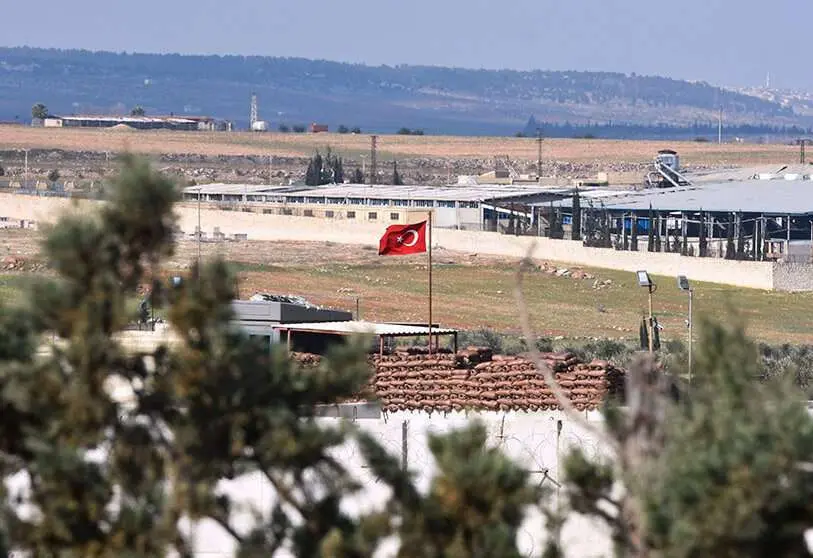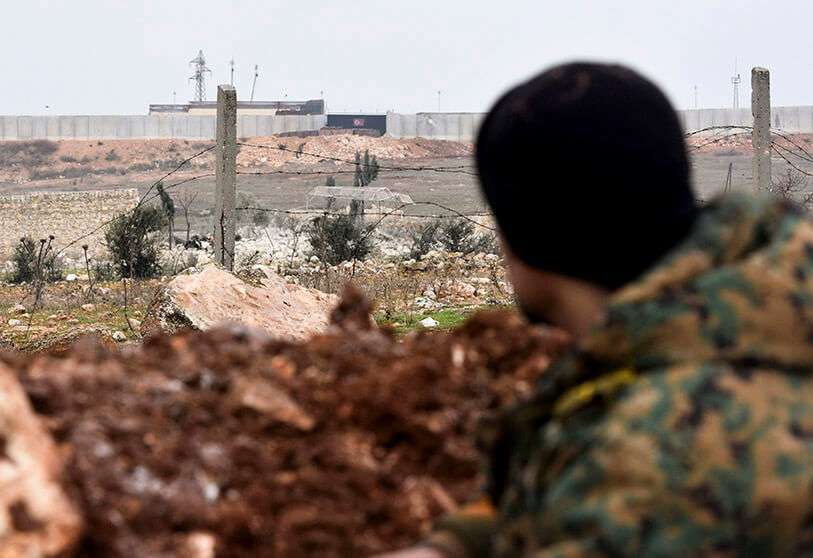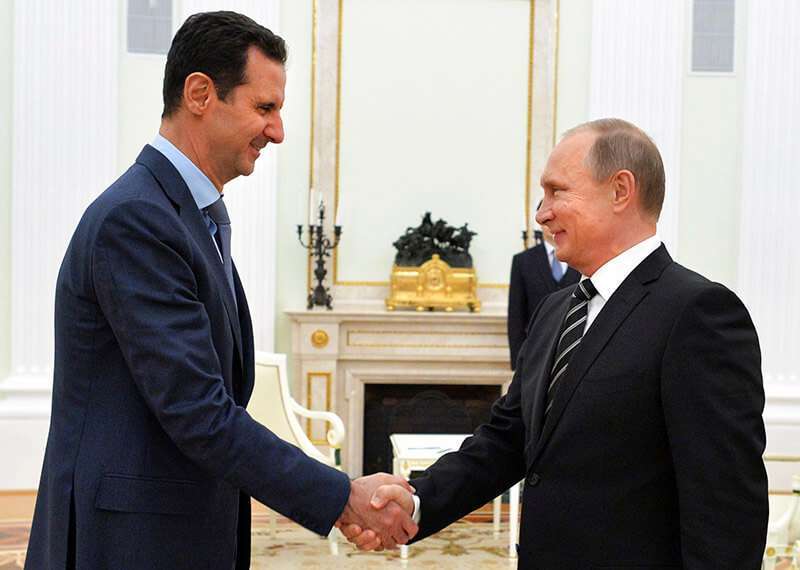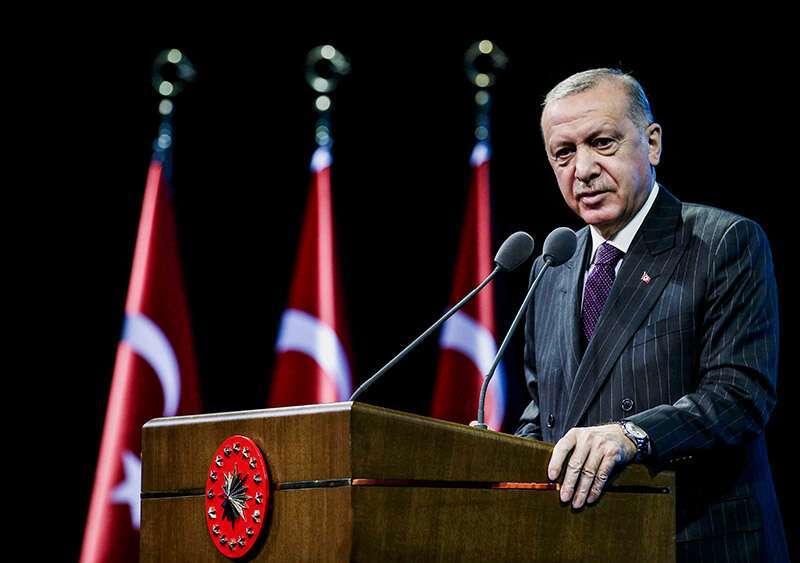Turkey removes some observation stations from northern Syria

Turkey has decided to abandon some military posts around the province of Idlib, the last rebel stronghold opposed to the Syrian government, including the stations it had agreed with Russia following the pact reached to distribute observation areas to the north of the territory.
Turkey established 12 observation stations following the ceasefire agreed in Idlib, a cessation of hostilities that prevented an offensive by Bachar al-Asad's Syrian government, supported by its main ally, Vladimir Putin's Russia. Damascus, with Moscow's invaluable support, is attempting to topple the last insurgent stronghold established in Idlib in order to reunify the country, furthermore arguing that elements linked to Jihadist terrorism are operating in the area. The area is also a hot spot owing to the presence of refugees who may be pushed to the Turkish border.
Turkey's president, Recep Tayyip Erdogan, gave the order to enter through the Turkish-Syrian border to settle in the north of the Middle Eastern country's territory with the excuse of controlling the situation and harassing the Kurds, whom he accuses of carrying out terrorist actions in the south of the Ottoman country. The Eurasian nation reached an agreement with Donald Trump's US government for permission to enter the area and for the US to leave the area, which cleared the way for the establishment of Turkish and Russian military posts. This was a controversial US exit because it was abandoning the Kurdish-Syrians, who were key to defeating the Daesh terrorist group in Al-Baghouz over a year ago, to their fate.

Turkey's presence in Syria is quite controversial owing to reports from various media pointing to the collaboration of the Ottoman forces with elements linked to Jihadist terrorism. In fact, the Eurasian country is also present in another civil war such as that of Libya and there have been many reports of Syrian mercenaries linked to organisations that allegedly collaborated with organisations such as Daesh and al-Qaeda being sent to the North African country.
Turkey's presence was an obstacle to the Syrian-Russian advance towards Idlib and a clash between the Turkish and Russian nations for having conflicting interests in Syria, despite the fact that both countries have been having good relations in the past (including with the purchase of Russian military equipment by the Turkish state, such as the S-400 defence system).
Now, according to the Middle East Eye, two people with knowledge of Turkey's exit decision assured that the Ottoman army would withdraw from four observation stations and two military sites that were surrounded by Syrian government forces earlier this year during a new assault on the rebel-controlled province.
"The observation stations are in areas that are difficult to defend in the current situation, such as Morek and Shir Maghar," said one of the people. "The military sites are near Saraqeb," the sources confirmed.

Turkey's decision to withdraw from these areas is a surprise, because Ankara could play these tricks for future negotiations with Moscow and Damascus.
Idlib is of great importance to the Turkish administration because it believes that it cannot afford another Syrian refugee crisis in the midst of a worrying economic situation. Because Turkey is experiencing serious financial problems with a strong drop of the Turkish lira and a high inflation.
Moreover, President Erdogan is experiencing internal political problems due to the loss of support among the population, which was shown by the last election defeat in the local elections last year, where he lost the control of such important cities as Istanbul and Ankara to the opposition. In view of these drawbacks, the Turkish government led by President Erdogan is imposing a tight internal control, with purges within the army and within the opposition sectors, by means of mass arrests of people who are accused of supporting the Kurdistan Workers' Party, an organisation considered as terrorist, and of having links with the clergyman Fethullah Gülen, seen by the Turkish regime as the leader of the coup d'état carried out in 2016.
The ceasefire agreed upon by Turkey and Russia cooled down the Syrian conflict to a great extent, a civil war that has been going on since 2011. However, when hostilities resumed in February, the advance of the Syrian government's forces killed dozens of Turkish soldiers deployed in northern Syria, increasing tensions.
In response, Ankara deployed hundreds of special forces, armoured vehicles, air defence systems, tanks and artillery. Turkish armed drones also hit the Syrian military convoys and air defence systems.
The subsequent ceasefire agreement sealed in March between Turkish President Recep Tayyip Erdogan and his Russian counterpart Vladimir Putin did not affect the Turkish positions now surrounded by the forces in Damascus.

Eight Turkish observation stations and five small fortified positions are currently surrounded by Syrian troops. And in front of this encirclement, the Turkish determination to abandon positions is now coming.
The sources consulted by Middle East Eye indicated that the Turkish army has decided to withdraw after Russia has blocked Turkey's ability to re-supply its positions and after the Syrian regime promotes civil actions and demonstrations against the Ottoman presence in the country.
Although local Syrian opposition media have speculated that the Turkish army is preparing for the upcoming clashes by relocating its military stations. Meanwhile, the Ottoman armed forces continue to deploy more troops to the south of Idlib to strengthen their defences.








